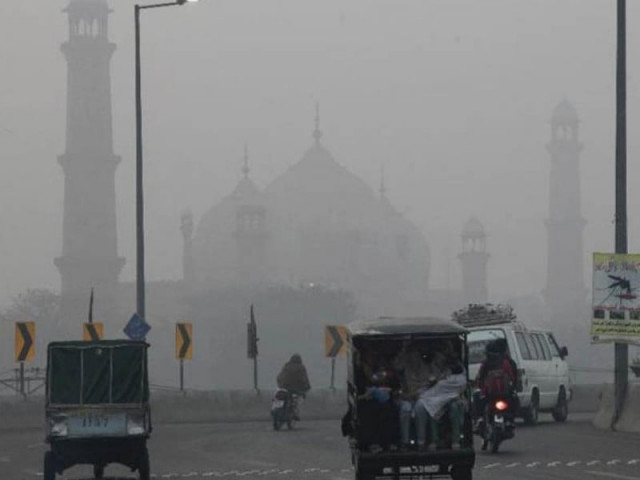Smog clean tower installed in Lahore to combat pollution
To mitigate the crisis, the government had previously closed schools and offices

In an effort to tackle severe air pollution, the Punjab government has launched a smog clean tower in Lahore.
According to state media, the smog tower aims to reduce hazardous smog levels that have plagued the city, particularly in the past month, affecting nearly two million residents.
The region has been struggling with toxic air due to heavy vehicle emissions, industrial activity, and crop burning, leading to widespread health issues.
To mitigate the crisis, the government had previously closed schools and offices, restricted outdoor activities, and adjusted the operating hours of businesses.
Lahore had also earned a reputation as one of the world's most polluted cities during this period.
The Smog Clean Tower, installed in partnership with the National University of Science and Technology, is designed to filter out harmful particles from the air.
Senior Punjab Minister Marriyum Aurangzeb hailed the initiative as a "revolutionary step" and emphasized the importance of modern technology in addressing the smog problem.
She also stated that the tower would serve as a model for other cities in Pakistan.
Experts believe that the smog in Punjab is largely driven by the combination of vehicle emissions, construction, industrial processes, and seasonal crop burning.
On the other hand, Punjab’s industrial units have faced challenges in environmental monitoring, contributing to severe air pollution, particularly in cities like Lahore.
While it is mandatory for factories to use environment-friendly technologies and monitor emissions, many fail to comply with the regulations.
Industrial units are required to perform self-monitoring and submit reports under the Pakistan Environmental Act of 1997, but only 10 to 20 percent of them follow these guidelines.
The tests for emissions are often conducted by private laboratories, which have faced criticism for providing unreliable reports.
There are currently only 14 private environmental labs in Punjab, most of which had expired licenses. Despite the need, the Punjab Environmental Protection Agency (EPA) had shown little interest in renewing licenses or granting new ones.
Experts, including Dawar Hameed Butt, a public policy and environment expert, pointed out that the government should either establish more environmental laboratories or improve the private sector’s monitoring system to prevent fake reports.
According to Dr. Ziaul Haq from the University of Punjab, many industry owners had met with private laboratories to create customized reports, undermining the credibility of the results.
Punjab has 17,857 industrial units, with a significant share of emissions coming from industries. The EPA had required industries to submit emission reports according to their category, with varying frequencies based on the type of emissions.
In response to these concerns, Muhammad Farooq, Deputy Director of Laboratories at the Punjab EPA, stated that a sub-committee had been formed to address the issue of establishing new environmental laboratories and renewing the licenses of existing ones. A decision was expected soon.



















COMMENTS
Comments are moderated and generally will be posted if they are on-topic and not abusive.
For more information, please see our Comments FAQ